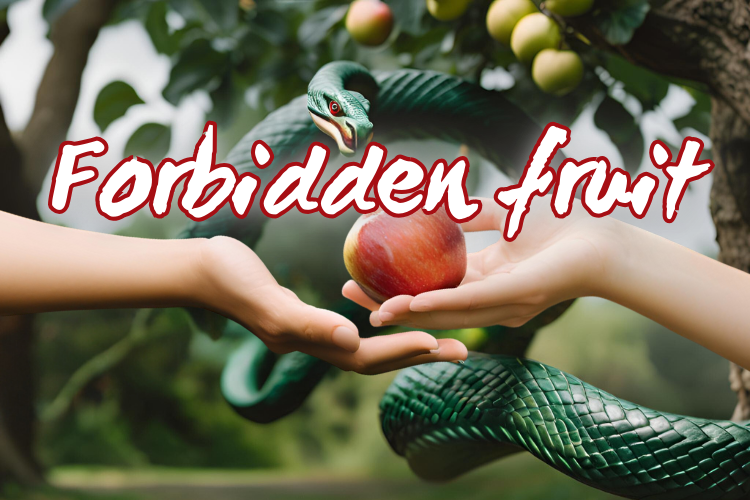Have you ever heard the saying “Forbidden fruit” and wondered what it means or where it comes from? Well, you’re in luck! Today, we’re diving into the origin and usage of this fascinating idiom. So, grab a snack (but maybe not an apple), and let’s get started!
Unwrapping the Meaning
The idiom “Forbidden fruit” refers to anything that is tempting but off-limits. It’s used to describe something that people desire precisely because they can’t have it. This isn’t just about literal fruit; it can apply to anything from relationships and choices to objects and experiences.
For example, imagine you’re on a strict diet, and your friend brings a decadent chocolate cake to a party. You know you shouldn’t eat it, but it looks so irresistible! In this scenario, the chocolate cake is the “forbidden fruit” because it’s something you desire but are not allowed to have.
Straight from the Source
“But of the tree of the knowledge of good and evil, thou shalt not eat of it: for in the day that thou eatest thereof thou shalt surely die.” – Genesis 2:17
The idiom “Forbidden fruit” traces back to the Bible, specifically the story of Adam and Eve in the Book of Genesis. In the Garden of Eden, God forbade Adam and Eve from eating the fruit from the Tree of the Knowledge of Good and Evil. However, tempted by the serpent, Eve ate the fruit and shared it with Adam. This act led to their expulsion from paradise.
The story symbolizes the idea of temptation and the consequences of giving in to it. Over time, “forbidden fruit” became a phrase to encapsulate anything that is highly desired but morally or legally off-limits.
Variations and Similar Sayings
Although “Forbidden fruit” is a well-known idiom, there aren’t many direct variations. However, several idioms carry a similar meaning or convey the idea of temptation and desire.
- “You want what you can’t have”: This idiom expresses the universal truth that people often desire things that are out of their reach.
- “Curiosity killed the cat”: This one suggests that seeking out the unknown or the forbidden can lead to trouble.
- “The grass is always greener on the other side”: Often, people think things they don’t have are better than what they currently possess.
These expressions, while not identical to “forbidden fruit,” share that essence of desire for the unattainable or the off-limits.
In sum, the idiom “Forbidden fruit” is a colorful way of describing our fascination with the things we can’t have. It’s rooted in ancient scripture but remains very much alive in today’s language. Next time you’re tempted by that off-limits treat or situation, you’ll know just what to call it.
Reference: https://www.bibleref.com/biblepassage/?search=Genesis_2:17-22
